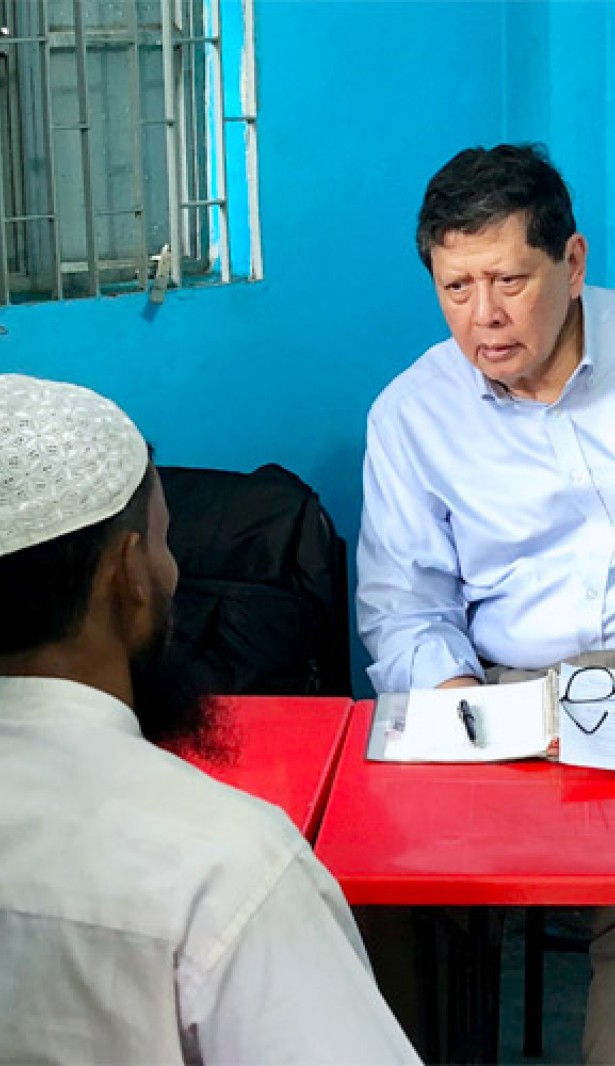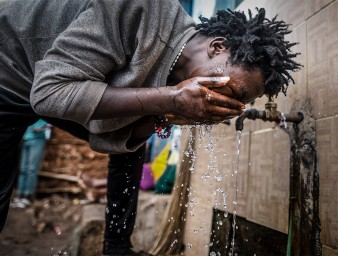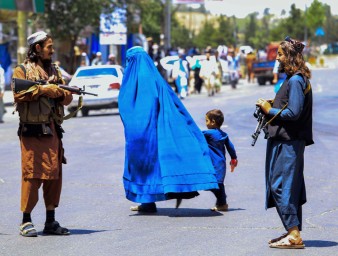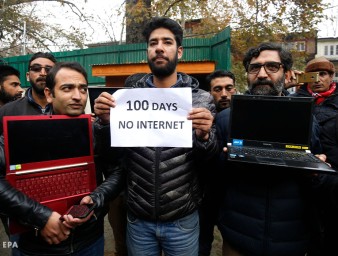Myanmar Fact Finding Mission: accounting for the gravest international crimes
29 August 2018
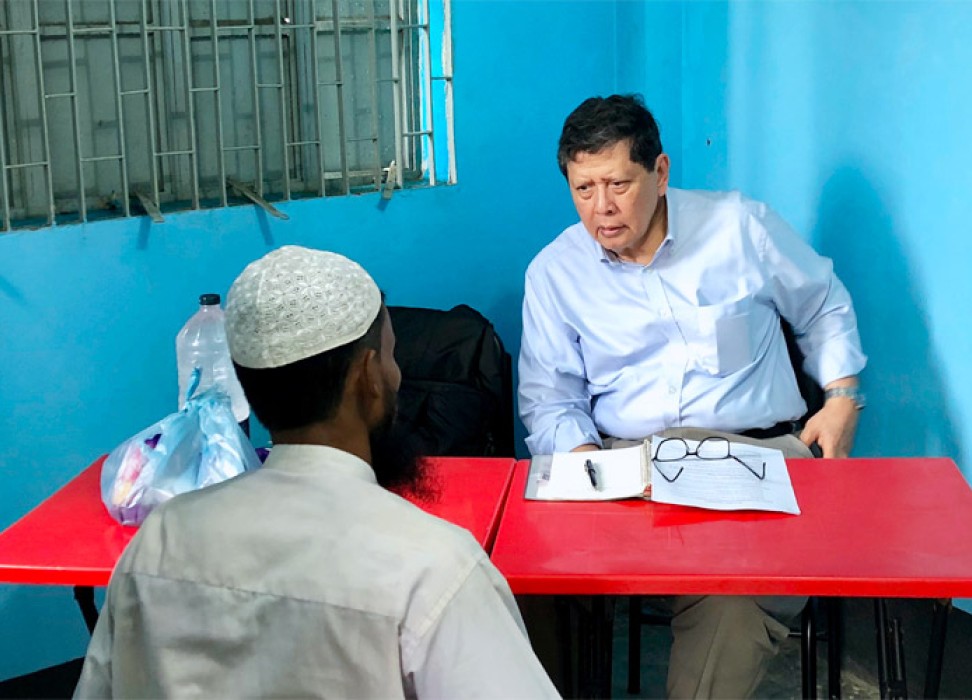
A fact-finding mission on Myanmar has concluded that the security forces in that country, specifically the Myanmar military – the Tatmadaw – have committed what amounts to war crimes and crimes against humanity, in its treatment of several ethnic and religious minorities in Rakhine, Kachin and Shan States.
In the case of the Rohingya in Rakhine, the Mission also concluded "there is sufficient information to warrant the investigation and prosecution of senior officials in the Tatmadaw chain of command, so that a competent court can determine their liability for genocide."
"The gross human rights violations and abuses committed in Kachin, Rakhine and Shan States are shocking for their horrifying nature and ubiquity," states the report. "Many of these violations undoubtedly amount to the gravest crimes under international law. [The violations] stem from deep fractures in society and structural problems that have been apparent and unaddressed for decades. They are shocking for the level of denial, normalcy and impunity that is attached to them."
The findings are part of the report to the Human Rights Council submitted by the Mission’s chairperson, Marzuki Darusman of Indonesia, and experts Radhika Coomaraswamy of Sri Lanka and Christopher Sidoti of Australia. A longer and more detailed report will be made available ahead of the Human Rights Council session in September.
The Mission was tasked by the Human Rights Council to establish the facts and circumstances of alleged recent human rights violations by military and security forces, and abuses, in Myanmar. The Mission focused on the situation in Rakhine, Kachin and Shan States since 2011.
The report discusses the systematic marginalization and "othering" of the Rohingya through State policies and practices that have been implemented over decades. The Rohingya are in a continuing situation of severe, systemic and institutionalized oppression from birth to death. The cornerstone and symbol of this system is their complete lack of legal status, including the denial of citizenship. Disturbingly, the report concludes that, although generally using less inflammatory language, the rhetoric of the Myanmar authorities has mirrored and promoted hateful and divisive narratives. This has fostered a climate in which virulent hate speech thrives.
The Mission documented mass killings, large-scale gang rape and other sexual violence, grave violations against children, and the deliberate and systematic destruction of entire villages, among other serious violations.
"The scale, brutality and systematic nature of rape and sexual violence indicate that they are part of a deliberate strategy to intimidate, terrorize or punish a civilian population", said Coomaraswamy of the Mission. "They are used as a tactic of war". The report defines sexual violence as one of four "hallmarks of Tatmadaw operations", along with the targeting of civilians, exclusionary rhetoric and impunity.
The Mission based its findings on a variety of sources, including 875 in-depth interviews with victims and eyewitnesses, satellite imagery analysis and a range of authenticated documents, photos and videos. The team received no cooperation from the Myanmar government nor was allowed to enter the country.
The report is unequivocal in who is most responsible for the human rights crisis in Rakhine, Shan and Kachin States: responsibility firmly lays with the Tatmadaw. The report goes so far as to name some of those responsible, including the Tatmadaw Commander in Chief, Senior-General Min Aung Hlaing, and five other senior generals.
"The consistent, tactical formula employed by the Tatmadaw exhibits a level of coordination only possible when all troops are acting under the effective control of a single unified command," the report states. "This effective control, combined with knowledge of crimes committed by subordinates, a failure to take necessary and reasonable measures to prevent and punish crimes and the casual link between these failures and that atrocities committed indicate that individual criminal liability would extend beyond individual perpetrators and to their hierarchical commanders."
The report notes that the civilian authorities have limited powers to control the Tatmadaw, and the Mission did not find anything to suggest that they directly planned or implemented the security operations. However, the report also identifies how the civilian authorities did contribute to the commission of atrocity crimes, through its acts and omissions. It also expresses deep disappointment in the State Counsellor, Daw Aung San Suu Kyi, for not using her position or her moral authority to do anything in the face of the unfolding events in Rakhine State.
In establishing the facts, the Mission hopes to contribute to the realization of the right to the truth of victims and the people of Myanmar as a whole. "Without the truth, Myanmar will not be able to ensure a prosperous and stable future for its people, all its people", said Marzuki Darusman.
"The military as an institution has never been held accountable," added Christopher Sidoti. "The provisions of Myanmar law, the structure of the legal system and the judiciary’s lack of independence and of legal competence, make it impossible for the domestic legal system to deliver justice for victims of human rights violations by the military." The report concludes that the impetus for accountability must therefore come from the international community.
The report recommends decisive action by the international community including: for the UN Security Council to refer the situation in Myanmar to the International Criminal Court or create an ad hoc international criminal tribunal, to adopt targeted individual sanctions, including travel bans and asset freezes against those who appear most responsible, and an arms embargo on Myanmar. It also proposes the establishment of a UN trust fund to support victims.
"[This mission] was undertaken with a view to recommend an accountability mechanism to be put in place, subsequent to our report," said Darusman. "We hope that this will be immediate…and that the UN will then carry on where we left off. We hope the truth will finally come out."
Read the report in full.
29 August 2018
